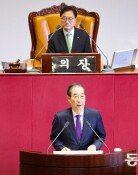Japan Shows UN Clout in Sanctions Bid
In the U.N., Japan is referred to as a special non-permanent member of the United Nations Security Council. Officially, Japan is just one of the 10 non-permanent U.N. Security Council members. The term of Non-permanent members at the U.N. Security Council is only two years. These non-permanent members dont hold veto power unlike the U.S., China, Russia, France and Britain.
But Japan receives special treatment. In particular, Japans power was well on display while the U.N. Security Council was seeking to pass a resolution imposing sanctions on North Korea to punish the Norths missile tests.
While pressing ahead with the vote on the resolution against North Korea, Japans ambassador to the U.S., Kenzo Oshima, pressured China, a permanent member, saying, We cant afford to wait endlessly. Japan will bring the resolution co- drafted by the U.S., to the U.N. Security Council.
One of the reasons that makes Japan voice in a high handed manner is the power of money based on its second largest economy in the world. By 2005 measure, Japan paid $229 million in membership dues to the U.N. Japans payment accounts for 19.5 percent of the U.N.s regular budget and is second highest after the U.S. (22.0 percent).
Considering the U.S. is often in arrears on its payment of membership dues, it is no wonder that Japans status in the U.N. looks more enhanced.
Though China is a permanent U.N. Security Council member, its contribution to the U.N. budget only makes up 2.1 percent of its total budget.
In addition to the big money, Japans cooperation with the U.S. is playing a big role in the expansion of Japans influence on the U.N. stage. In fact, during the discussion on the resolution against North Korea, a hot line was reportedly set up between Washington and Tokyo at the order from President Bush. The Nihon Keizai Shimbun reported yesterday that President Bush even ordered not to let Japanese Prime Minister Junichiro Koizumi face trouble. During the adoption of the resolution against North Korea following the Norths missile launching, White House National Security Advisor Steven Hadley showed U.S.s close bond with Japan, making frequent calls on the mobile phone with Japans Chief Cabinet Secretary Shinzo Abe.
Jong sik Kong Young-A Soh kong@donga.com sya@donga.com







